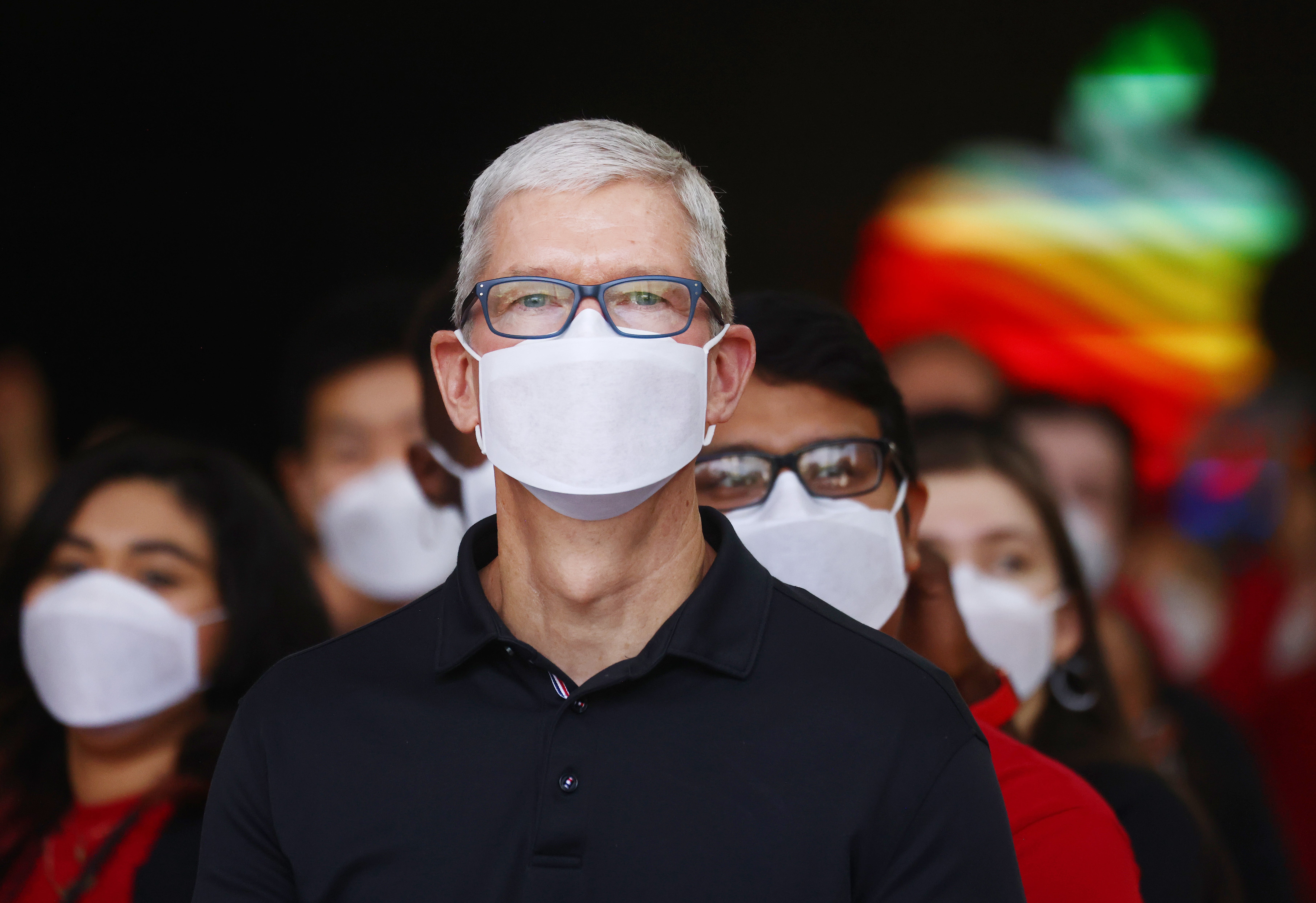How AI could end the strange morning rituals of tech bosses
Annoying customer surveys could also be a thing of the past, says Chris Blackhurst


Truly, the kings of tech are different.
Over the years, we’ve gotten used to their intensity and relentless focus, their messianic fervour when it comes to describing their products, and of course, compared with traditional business titans, their casual manner and dress sense.
Now comes further proof that they’re a breed apart: Tim Cook says he reads every customer email sent to him.
Various bosses have said how they take feedback seriously; some have claimed to enjoy reading letters from customers, describing how they will ask their secretary to give them a selection or dip into the pile. The rest are dealt with by customer services.
Not the boss of Apple. He tells GQ that he rises at 5am and reads through all his emails. His email address is freely available online. “If you’re in the business, like we are, of creating technology that really enriches people’s lives – you want to know what it is doing. You want to know how people are feeling about it.”
As well as telling him what they think of his products, his customers sometimes tell him stories about their own lives, and he claims, this information becomes a source of inspiration. “Of course, I get some complaints as well. Those are cool, too, because I want to stay grounded in terms of what our users are thinking, what they’re feeling.”
Jeff Bezos, former chief executive and founder of Amazon, did the same as Cook. However, most would not dream of making their email so available. Cook gets around 800 emails a day. In theory, he could receive emails from the estimated 2 billion customers around the world who use one of his devices. Certainly, having made this declaration, he can expect to hear from a lot more.
For some reason, successful bosses have felt the need to share their morning routines. Now that he has stepped back from running Amazon, Bezos says he likes to spend his morning “puttering” – waking up early, reading the newspaper, and having breakfast with his children, before his first meeting at 10 am. Mark Zuckerberg wakes up and goes on Facebook. Microsoft co-founder Bill Gates starts his day with an hour on the treadmill; he doesn’t eat breakfast, according to his wife. Elon Musk tweeted: “I eat a donut every morning. Still alive.”
Behind their openness is a desire to show how in-touch they are, just like ordinary folks. Most of us would rather be told what’s what by those in our close circle. Not the tech wizards; they seemingly want the connection with strangers. In Management Today, Hasdeep Sethi, a senior data scientist at Strat7, says they are behaving normally and we’re in the wrong. “The value of Cook’s efforts is underscored when seen in the context of the closeness-communication bias, a psychological tendency by which humans are conditioned to pay closer attention to strangers than their inner circle.”
Sethi observes that, in reality, “not many businesses, let alone their CEOs, make use of such freely available external data – and that’s largely a practical decision … would you really choose to wade through thousands of emails in the hope of gleaning some rare nugget of insight?”
Now, help is at hand. Developments in AI make it feasible for CEOs to make use of, and extract insights from “unstructured data” such as unsolicited emails. “This type of data is typically text-heavy, and it can be difficult to interpret and analyse using traditional methods (ie lots of reading),” says Sethi. Other examples of unstructured data include social media posts, call centre transcripts, website logs, customer feedback forms, and even video and audio.
With emails, AI tools can produce insights by analysing patterns in the text, identifying keywords, and categorising them based on topics or similarities. “For example, an AI approach could read 50,000 customer emails and identify the top 10 areas of concern about a product. This can be done by using natural language processing (NLP) techniques – the same technology that underpins ChatGPT and Google’s Bard – to identify topic areas and keywords that are frequently mentioned in feedback.”
It would seem the days of the customer survey are numbered, thank goodness. This is because unstructured data can reveal what Donald Rumsfeld called the “unknown knowns” – which he defined as “things you think you know that it turns out you did not”.
Unstructured data can also furnish natural, unprompted information that researchers may not have thought to ask about, or it may shine a light on less obvious trends. Why does this matter? Because a recent PwC report found that 56 per cent of CEOs identified changes to customer preferences as the biggest threat to profitability.
Tim Cook’s approach is likely to fall on deaf ears where one innovative tycoon is concerned. Sir James Dyson says he reads only six emails a day. He gets his staff to filter the most important; they deal with the rest. He gives new recruits notebooks to use in meetings and encourages staff to talk to each other rather than communicating digitally across the office. “We’re creating things, working out how to sell them,” he says. “You can’t do that on your own. You have to talk.”






Join our commenting forum
Join thought-provoking conversations, follow other Independent readers and see their replies
Comments